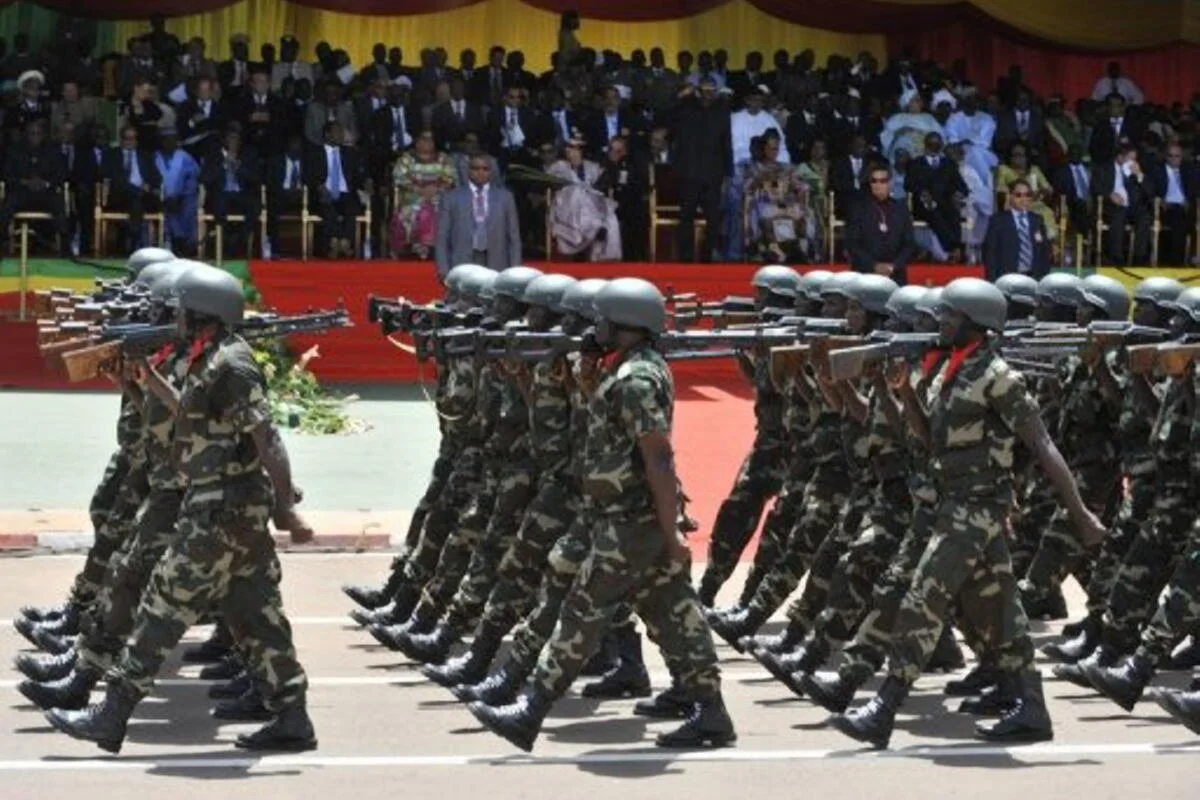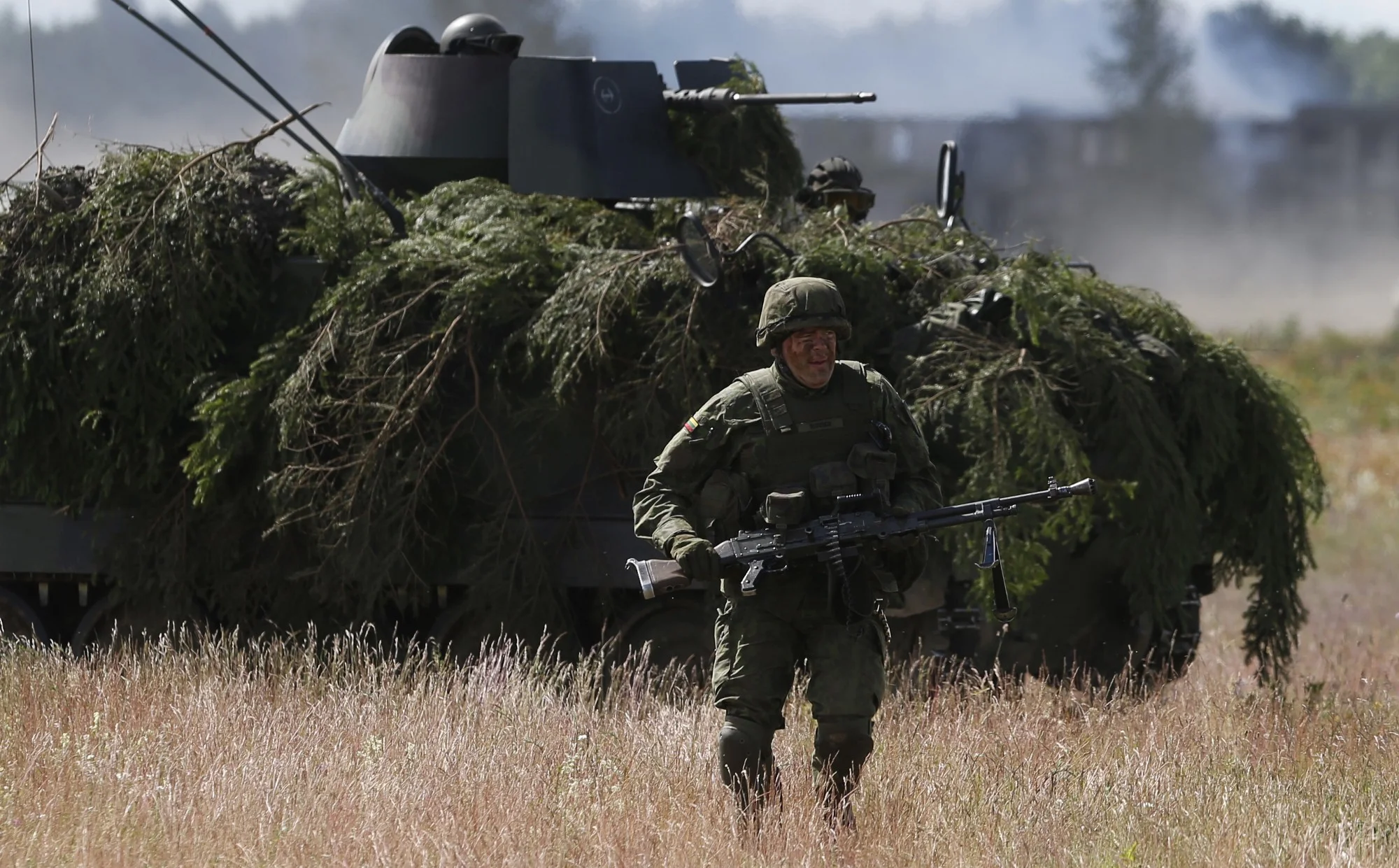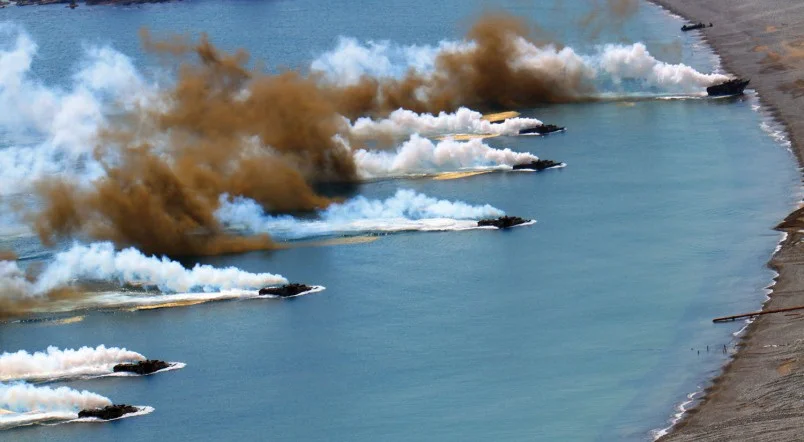A shroud of myth and legend surrounds Russian strategy. As far back as the 1980s, the U.S. began looking at the widespread use of precision-guided munitions and other associated technology because the Russians had an allegedly more advanced conception of their potential. In 1982, the operational level of war debuted in U.S. doctrine, allegedly because it existed in Soviet doctrine. The only way to combat such misconceptions is to take the Russians at their word. Specifically, by reading their words. Strategiya: The Foundations of the Russian Art of Strategy, edited by Dr. Ofer Fridman, Lecturer at King’s College London, is one of the best weapons available.
#Reviewing The Russian Understanding of War
Jonssan’s thesis is that the Russian government and armed forces believe there has been a change in the nature of war with the advent of the information revolution. Specifically, information warfare is now so potent that it can achieve political goals commensurate with war without recourse to military means. The resulting book offers an efficient overview of trends in Russian military thought since the collapse of the Soviet Union paired with detailed examinations of the two major subjects that have defined those trends: information warfare and color revolutions.
#Reviewing The Battle of the Somme
German troops to the southeast, at Verdun, were advancing further into French territory and the French Army was hurling itself at their lines to try and force the Germans to retreat. The entire idea behind the Somme offensive was to take pressure off the French forces at Verdun, while success or failure at the Somme was almost an afterthought. If there was any doubt in Foch’s mind, there does not seem so to those looking at the Somme from the remove of a century.
#Reviewing Combined Operations
A major power confronts another across a wide expanse of ocean. Neither opponent is able to significantly threaten the other’s mainland without mastering and crossing the waves. But the vast distances involved are daunting even for the opposing navies. One side then executes an east-to-west island hopping campaign, using the possession of islands to control the sea and project force far beyond the capacities of lesser powers.
Command of the Littorals—Insights from Mahan
For all the changes in naval warfare—from non-state actors to precision-guided missiles to the inevitable small, autonomous, unmanned craft tactics—the maritime world is exactly how Alfred Thayer Mahan described it a century ago. This doesn’t mean naval tactics, and therefore naval warfare, will be the same as described in his works. That won’t be the case. Whatever character littoral naval warfare takes on in the future, its north star will always be sea control.
Vicksburg: The Past and Future of Amphibious Operations
The Vicksburg Campaign yields a number of lessons for tacticians and strategists. Grant was a talented commander to be sure, but the most important reason for his success was the Union Navy under the able leadership of Admiral Porter. Not just its presence, but the tight coordination between the two allowed one to support the other and vice versa. Land and sea are too intimately connected during amphibious campaigns for the typical supported/supporting relationships to work, there must be symbiosis.
Carthage vs. Mosul: The Utility of Tactical Theory
No tactical situation is entirely new, but none are ever entirely the same either. Applying theory to an original situation in an original way is the art, in both tactics and strategy. It’s also why tactical principles can never be immutable and are always subject to the play of probability. By understanding tactical theory, tacticians can train their minds to recognize the ways they can weigh the dice of probability in their favor.
Fellow Travelers: Managing Savagery and The Gerasimov Doctrine
Both ISIS and Russia seek to present themselves as a solution to unbearable problems. If they are simultaneously the cause of those problems, or seek to exacerbate them, that is irrelevant. Especially in the case of ISIS, they believe that if they make life solitary, poor, nasty, brutish, and short enough, a given population will accept even draconian masters in exchange for peace and stability.
West Africa’s Decisive Intervention: A Lesson in Strategy
The waning weeks of 2016 and the first month of 2017 witnessed one of the most strategically effective uses of military force in the 21st century. When long-time President of the Gambia, Yahya Jammeh, refused to step down after being voted out of office, the Economic Community of West African States (ECOWAS) sponsored a Senegalese-led intervention that forced Jammeh to leave the country. This intervention upheld the integrity of the Gambian democratic process and allowed the victor, Adama Barrow, to assume leadership of the small West African country. The ECOWAS intervention force assembled the means to impose its will on their opponent, formulated and executed a strategy calibrated to achieve the political effects desired, and achieved all of its policy goals--all without firing a single shot.
#Reviewing "The Sun Also Rises" and "The Road Back From Broken"
We are locked in with Jake; we know his thoughts and feelings, or at least we know as much as Hemingway lets us know. Jake's inability to connect with those around him is as emotional as it is physical, and the first-person narrative allows the reader to experience some measure of that isolation. Fitz, however, is not alone in his head with the reader. His failing connections with those around him are not completely severed lifelines. The third-person omniscient perspective allows Morgan to explore not just Fitz's feelings but how his injuries affect those around him, those trying to help him, and those who depend on him. The shift in perspective from one to the other underscores a shift in our own perspective on the injuries of war since Hemingway's own experience: no one should have to travel the road alone.
#Monday Musings: B.A. Friedman
#Reviewing The U.S. Naval Institute on Naval Strategy
The strategic mind of the navalist is on full display in the latest Wheel Book from the U.S. Naval Institute. Naval Strategy, edited by Thomas J. Cutler, is paired well with the earlier installment, Naval Tactics by Captain Wayne P. Hughes Jr., USN (Ret.). Cutler’s volume, however, is the meatier one as it includes articles by Admiral J.C. Wylie, Sam Tangredi, Milan Vego, Samuel Huntington, Sir Julian Corbett and Admiral James Stavridis, amongst others. The essays by Wylie and Corbett are themselves worth the price of admission.
Madam General: Interviewing Vanya Eftimova Bellinger
I first got interested in Clausewitz while living in Germany. It was a time of heated debates on whether US should have invaded Iraq. I think I bought my first copy of On War in German around 2005. Then during my graduate work, Clausewitz was again a big part of the discussions and I started reading it once again. This time, however, I was also interested in Clausewitz, the man and soldier, and so I stumbled upon the whole story about Marie editing On War. None had written anything in depth on the subject and I thought this might be something I could study.
Madam General: #Reviewing Marie von Clausewitz: The Woman Behind the Making of On War
The Battle of Salamis: Themistocles and the Birth of Strategy
A strategos was not solely concerned with winning battles — the tactics. He was, in the later words of Clausewitz, concerned with the use of battle to further the political ends of his city. In other words, the strategos had to keep the long-term goal in mind and ensure that the tactics work to further that goal. A tactician would never abandon key terrain without a fight; it makes little tactical sense. But strategy may demand that very thing and tactics must be subordinated. This exact situation occurred during the Persian Wars in Fifth Century Greece. The first major Greek strategist, and perhaps the most gifted, was Themistocles.
John Boyd’s Revenge: How ISIS Got Inside Our OODA Loop
One of the most influential names in strategic studies is that of Colin S. Gray. He is not only an authority in the field, but a prolific writer. His book The Strategy Bridge — the one that gives this blog a name — is no less than a theoretical system which organizes the entire field, including the ranking of major theorists into tiers. Gray is no fan of John Boyd, the irascible Air Force Colonel who invented the well-known “OODA loop” but wrote nothing, preferring instead to communicate with his audience through grueling presentations rather than written works. The slides can be confusing, and the only academic treatment is Science, Strategy and War by Frans P.B. Osinga, so it is understandable that Boyd’s ideas haven’t achieved much purchase in academic strategic studies. Gray is emblematic of most authorities even though Boyd has a devoted following amongst practitioners and an annual conference devoted to his ideas. Increasingly it seems like Boyd’s ideas were quickly dismissed by strategic theory and then left behind.
The Battle of Gallipoli
The Battle of Gallipoli was a watershed moment in the history of warfare. Few other battles were initiated with such high strategic hopes that were then dashed so quickly. Its influence carried far beyond the war in which it occurred. Simultaneously, it spurred some observers to proclaim that the amphibious assault was impossible and others, notably then-Captain Earl “Pete” Ellis of the United States Marine Corps, to completely reexamine the amphibious assault in a modern context and design modern forces to accomplish it.
NATO’s Ability to Respond to Crisis: The New Rapid Reaction Force
An expeditionary force needs to be nimble enough to move quickly but strong enough to punch hard. It does not need the ability to win a war, but it does need the ability to hold off a large conventional force until a more robust NATO response can be organized. It also needs to be able to respond to a wide variety of crises





















